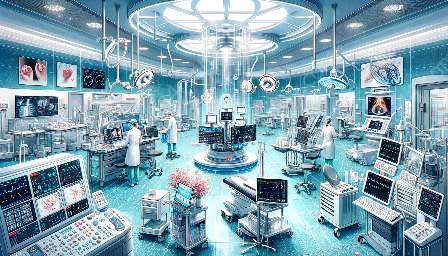Personalized medicine is revolutionizing healthcare by tailoring treatment to individual patients. Biomedical instrumentation and medical devices play a critical role in this advancement, from diagnostic tools to treatment monitoring. This article explores how biomedical instrumentation contributes to personalized medicine and enhances patient care.
Understanding Biomedical Instrumentation
Biomedical instrumentation refers to the application of engineering principles and techniques in the medical field to develop devices for diagnosis, monitoring, and treatment. These instruments encompass a wide range of technologies, such as imaging systems, biosensors, wearable devices, and therapeutic equipment.
Role in Personalized Medicine
The concept of personalized medicine focuses on delivering customized healthcare tailored to the unique genetic, environmental, and lifestyle factors of each patient. Biomedical instrumentation plays a pivotal role in achieving personalized medicine through the following aspects:
- Diagnostic Tools: Advanced imaging systems, genetic analyzers, and point-of-care devices enable precise diagnosis and early detection of diseases. These tools provide healthcare professionals with crucial insights into individual patients' conditions, facilitating targeted treatment plans.
- Precision Treatment: Biomedical instrumentation contributes to the development of targeted therapies and drug delivery systems. Innovative medical devices allow for the administration of personalized medication doses, minimizing side effects and maximizing treatment effectiveness.
- Monitoring and Feedback: Wearable biomedical devices and remote monitoring systems enable continuous patient monitoring, generating real-time data for personalized healthcare management. This approach empowers patients to actively participate in their treatment and recovery processes while ensuring timely intervention by healthcare providers.
Enhancing Patient Care
Biomedical instrumentation not only advances personalized medicine but also significantly contributes to improving overall patient care. The following areas highlight the impact of medical devices on enhancing patient well-being:
- Early Intervention: Rapid and accurate diagnostic tools facilitate early intervention, leading to improved patient outcomes and reduced healthcare costs. Biomedical instrumentation enhances the effectiveness of preventive healthcare measures and disease management, ultimately benefiting patients.
- Minimally Invasive Procedures: Technological advancements in biomedical instrumentation have led to the development of minimally invasive surgical and therapeutic procedures. These techniques enable quicker recovery, reduced pain, and lower risk of complications, enhancing the overall patient experience.
- Data-Driven Decision Making: The integration of medical devices with data analytics and artificial intelligence allows for evidence-based decision making in patient care. By leveraging real-time data and predictive analytics, healthcare professionals can make informed treatment decisions, ultimately improving patient outcomes.
Technological Innovations
The rapid evolution of biomedical instrumentation and medical devices continues to drive technological breakthroughs in healthcare. Key technological innovations contributing to personalized medicine and patient care include:
- IoMT (Internet of Medical Things): The integration of medical devices with interconnected systems enables seamless data exchange and remote monitoring, facilitating personalized care and treatment optimization.
- Biosensors and Wearable Technology: Miniaturized biosensors and wearable devices provide continuous health monitoring, empowering patients to proactively manage their well-being and enabling healthcare providers to offer personalized care based on real-time data.
- Advancements in Imaging: High-resolution imaging modalities, such as MRI, CT, and ultrasound, offer detailed anatomical and functional insights, supporting precise diagnosis and targeted treatment planning for personalized medicine.
- Precision Medicine Platforms: Integrated platforms and software solutions enable healthcare professionals to effectively gather, analyze, and interpret patient data, leading to personalized treatment recommendations and care plans.
- Empowering Patients: Personalized medicine, supported by advanced medical devices, empowers patients to take control of their health through proactive self-management and active participation in treatment decisions.
- Healthcare Accessibility: The innovative use of biomedical instrumentation may contribute to improved healthcare accessibility, particularly in underserved areas, by enabling remote diagnostics and telemedicine, bridging geographical healthcare gaps.
- Cost-Effective Care: Personalized medicine, driven by biomedical instrumentation, has the potential to optimize resource utilization and reduce healthcare costs through precise diagnosis, targeted treatment, and proactive disease management.
Future Implications
The ongoing advancements in biomedical instrumentation are poised to redefine the future of healthcare. With personalized medicine becoming increasingly integrated into clinical practice, the following implications can be anticipated:
Conclusion
Biomedical instrumentation is at the forefront of advancing personalized medicine and reshaping patient care. Through technological innovations, diagnostic precision, and personalized treatment options, medical devices are revolutionizing healthcare delivery, with the ultimate goal of improving patient outcomes and quality of life.


